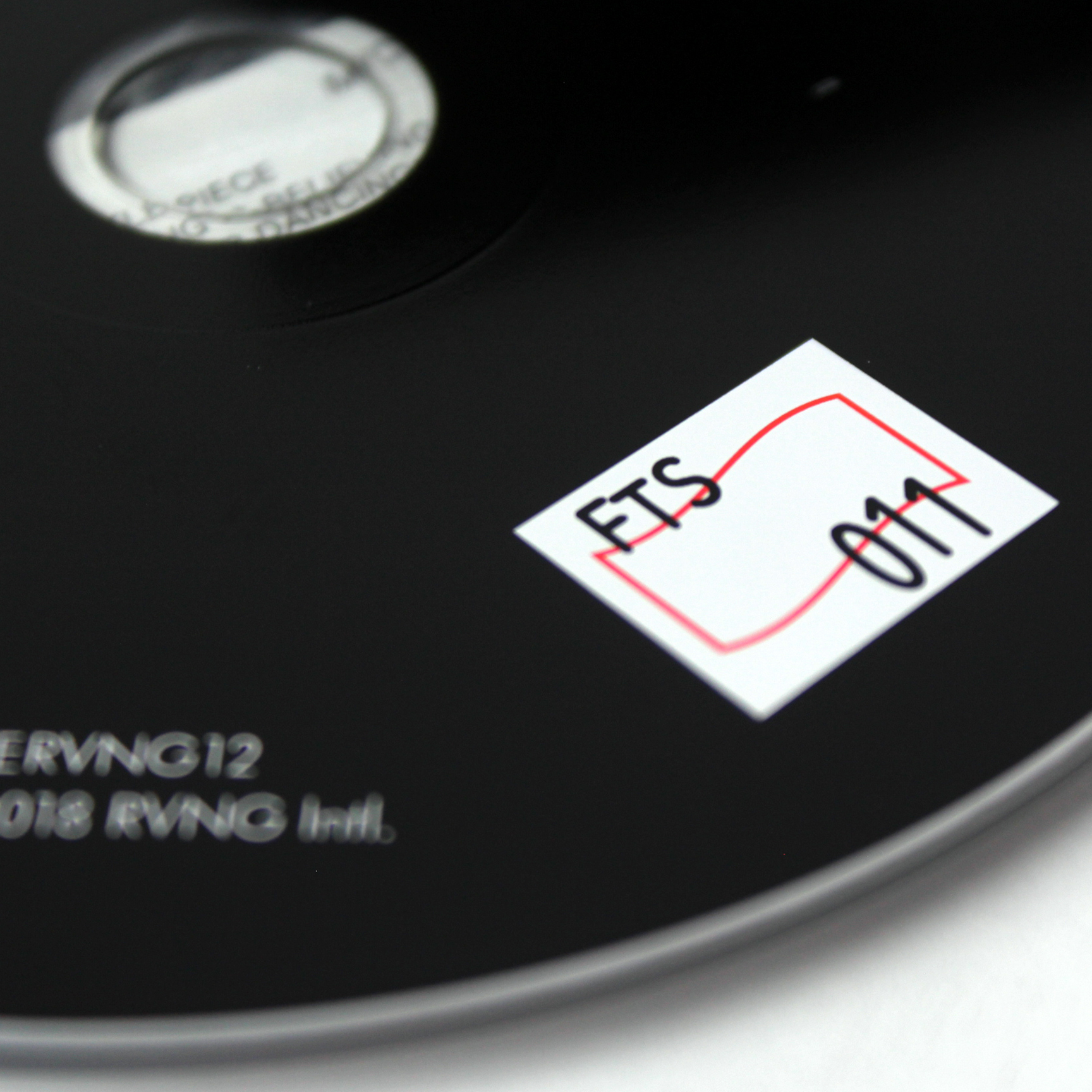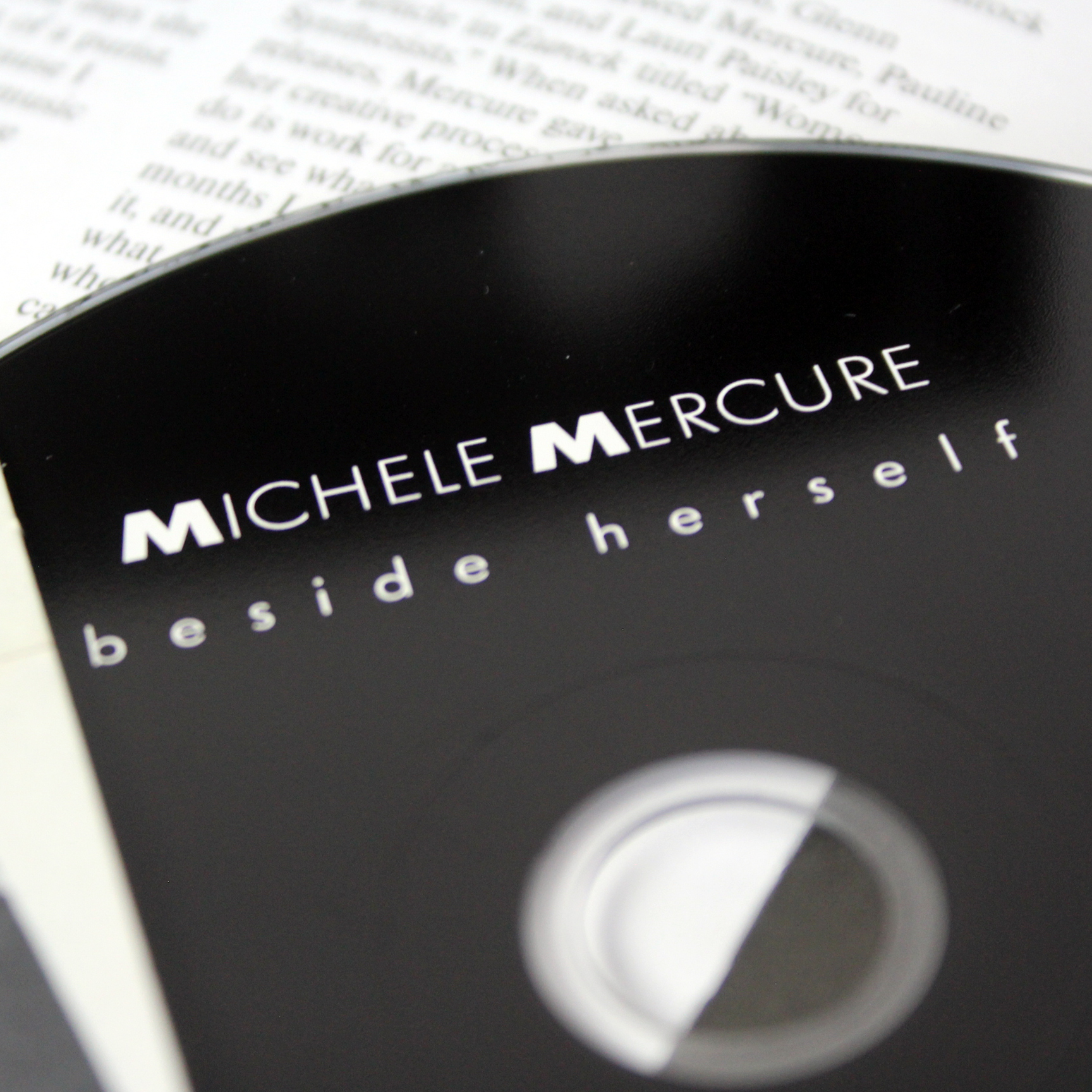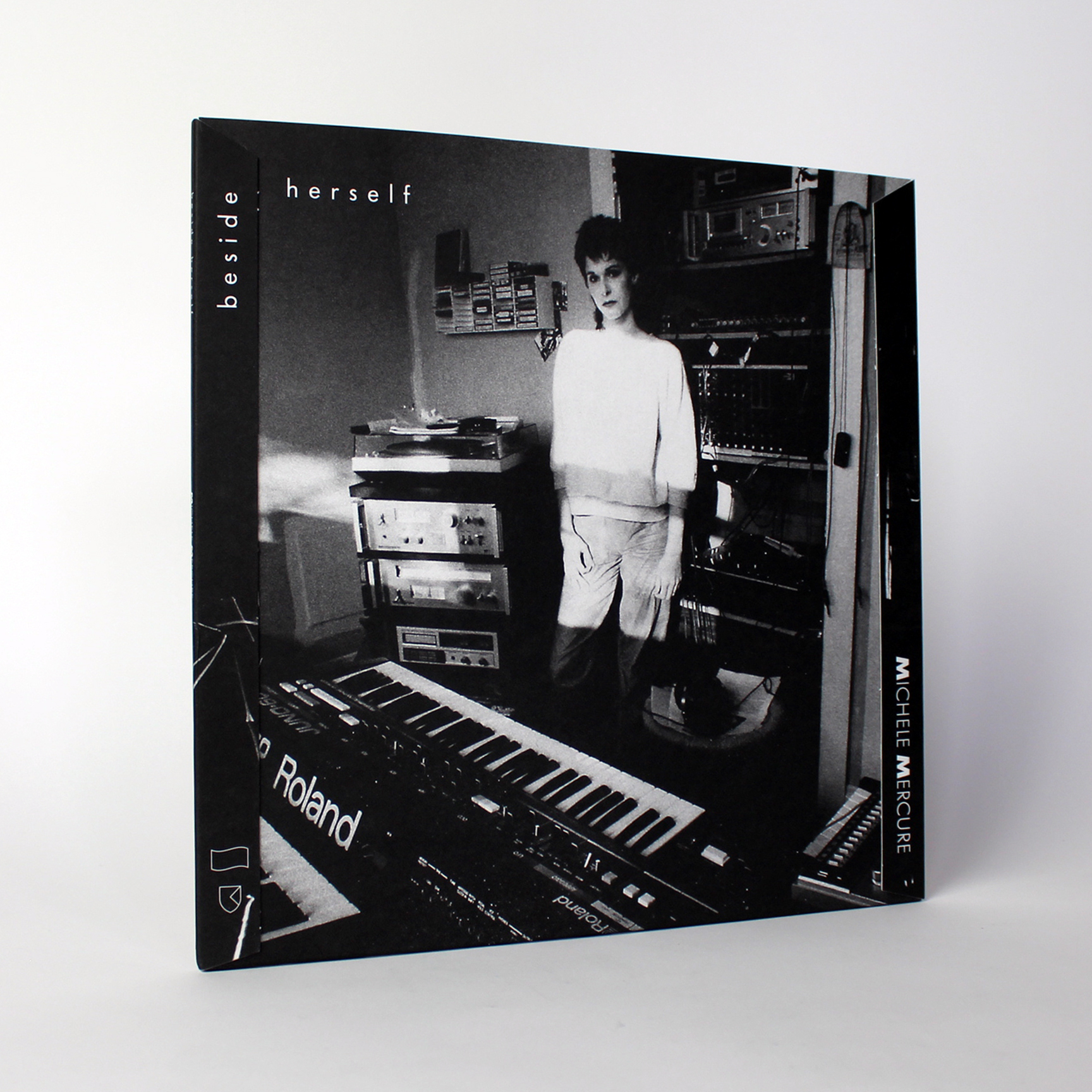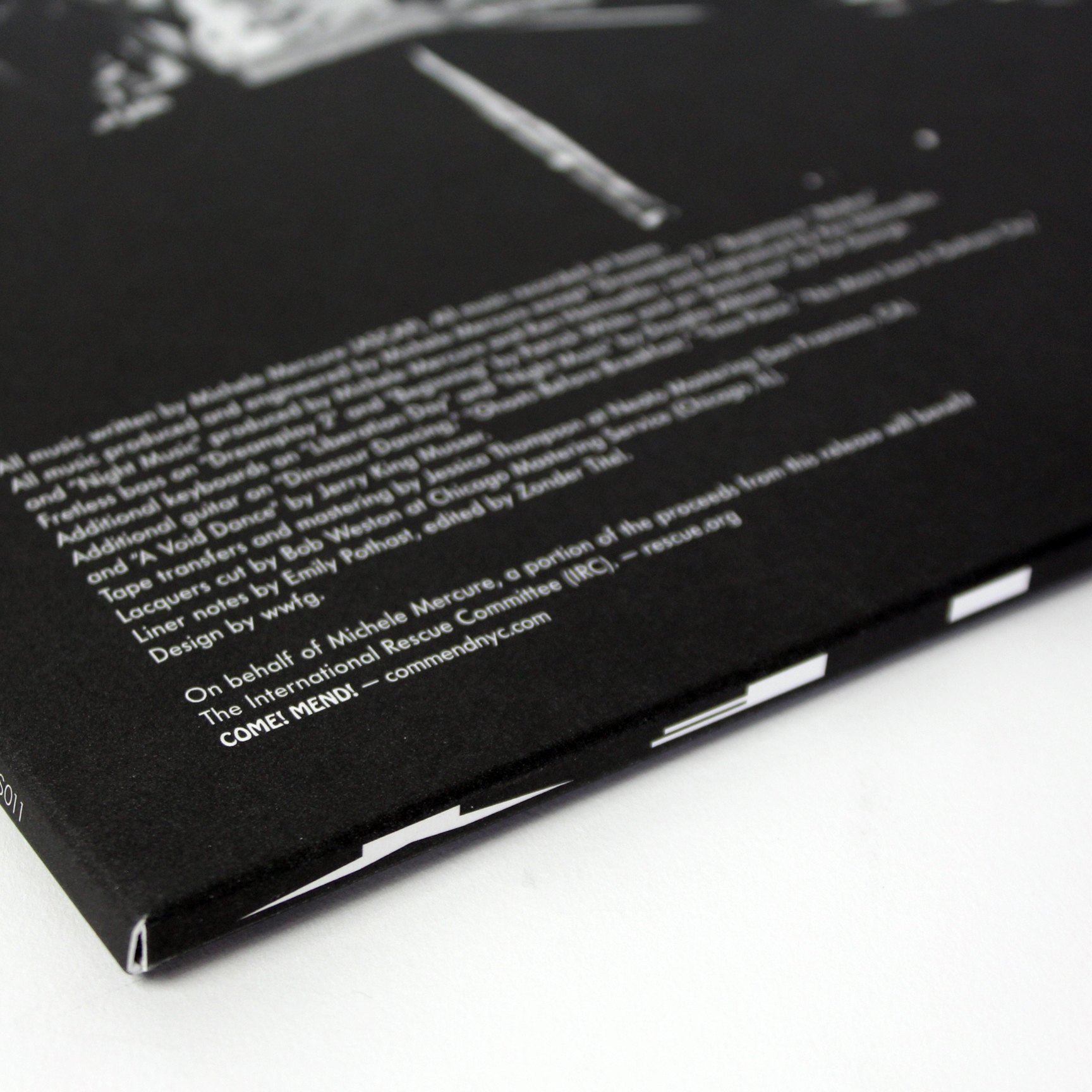Michele Mercure
BESIDE HERSELF
FTS011
Vinyl DBL LP
CD















Michele Mercure
BESIDE HERSELF
FTS011
Vinyl DBL LP
CD
Michele Mercure often dreams of music, and in her waking life, reclaims fragments of these fleeting, floating melodies in her compositions and sound art. Beside Herself, an anthology of Mercure’s self-produced and distributed cassettes released between 1983 and 1990, collects these dreamlike passages and lo-fi nocturnes, preserving the qualities of discovery and intimacy surrounding their genesis.
Mercure’s sound is a porous electronic art that overlaps ambient, abstract, and industrial sensibilities – its spaciousness reveals an artist attuned cinematically rather than for radio play or public performance. She approached the latter theatrically, and rarely, disdaining most live shows as too serious, and bringing her music to bare on her audiences in playful, immersive contexts. On recordings, Mercure’s night lit synth music evokes non-confined environments, at once expressionistic and minimal and always aware of its surroundings.
Mercure was a busy collaborator during the years surveyed by Beside Herself, making music for theater, performance, film, and TV animation, yet it was through her self-released cassettes that she established her music among like-minded artists abroad. Circulated through tape-trading networks assisted by insightful reviews in Eurock, a seminal music magazine covering progressive rock and electronic music scenes, these album-length releases included Rogue and Mint (1983), A Cast of Shadows (1984), Dreams Without Dreamers (1985), and Dreamplay (1990). Though unvarnished in fidelity (and now scarcely seen), these tapes showcased Mercure’s transportive aptitude within and beyond the limited sound recording medium.
Mercure’s artistic path never ran through creative meccas New York, San Francisco or Los Angeles. Raised in Springfield, Massachusetts, and then moving to Harrisburg, Pennsylvania, in her twenties, Mercure was already an adept musician when she encountered a local and lively theater scene, and was asked to score an unorthodox performance of Waiting for Godot. The experience was pivotal in marrying music and image for Mercure, and so she began making music for film, television, dance, and theater. It wasn’t until a long sojourn in Eindhoven, however, that she became transfixed by electronic music (ala Conrad Schnitzler, whom she would correspond with for years) that would inform her music to come.
Acoustic elements such as voice and stringed instruments add a haunting lyricism to the non-tonal space unoccupied by electronic presence in Mercure’s music. The graduality of phrasing and measured sequence of tones also distinguish her music from the repetition and improvisation-heavy hallmarks of the Kosmische genre, a stylistic antecedent for the artist. Mercure’s fascination, or obsession, with new, consumer conscious music technology is demonstrated in her inventive sequencing and sampling, adding a mechanical, sometimes menacing, feel to Beside Herself.
Mercure’s contemporaries became the kindred minds of the Eurock “scene” such as The Nightcrawlers, Lauri Paisley, and Don Slepian. It was in association with Paisley and Pauline Anna Strom that Eurock featured Mercure in an article titled “Women Synthesists” in 1986. The three artists all shared a bravura for homespun, self-produced electronic music that looked beyond pop conventions for a higher plane of avant-gardism or musical spirituality. Not long after the article went to print, Mercure offered Eye Chant, her standalone vinyl album self-released in 1987.
Beside Herself extends RVNG Intl.’s preservation efforts to sister label Freedom To Spend who reissued Eye Chant in 2017, an occasion marking just over twenty years since its original release on Mercure’s own Quick Shower Music. (Eye Chant, and the cassettes surveyed on Beside Herself, were originally credited to Michelle Musser, the name which the artist used until a divorce in 1987).
The anthological scope of Beside Herself joins Eye Chant to restore the canon of Mercure’s arresting dream-music, revisiting this anomalous creator’s breakthrough material. Beside Herself will be released on double LP, CD, and digital formats on November 9, 2018. The set features liner notes by Emily Pothast and an incredible array of unseen photography and ephemera of the era.